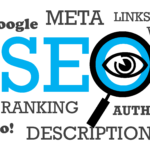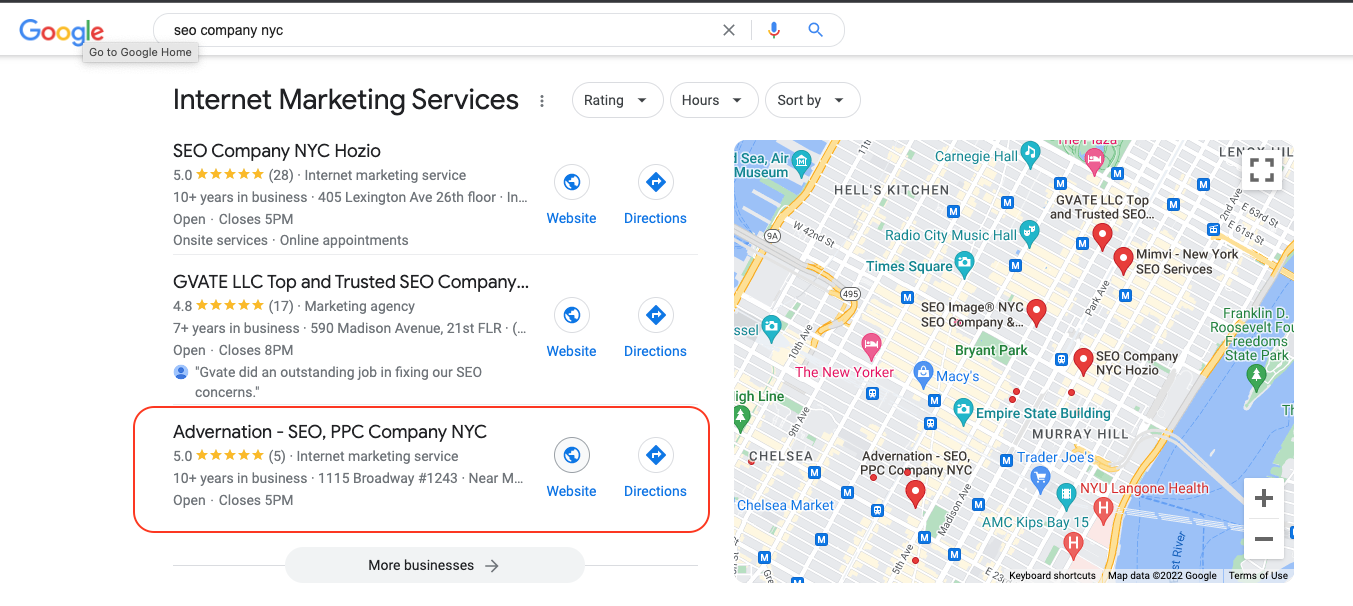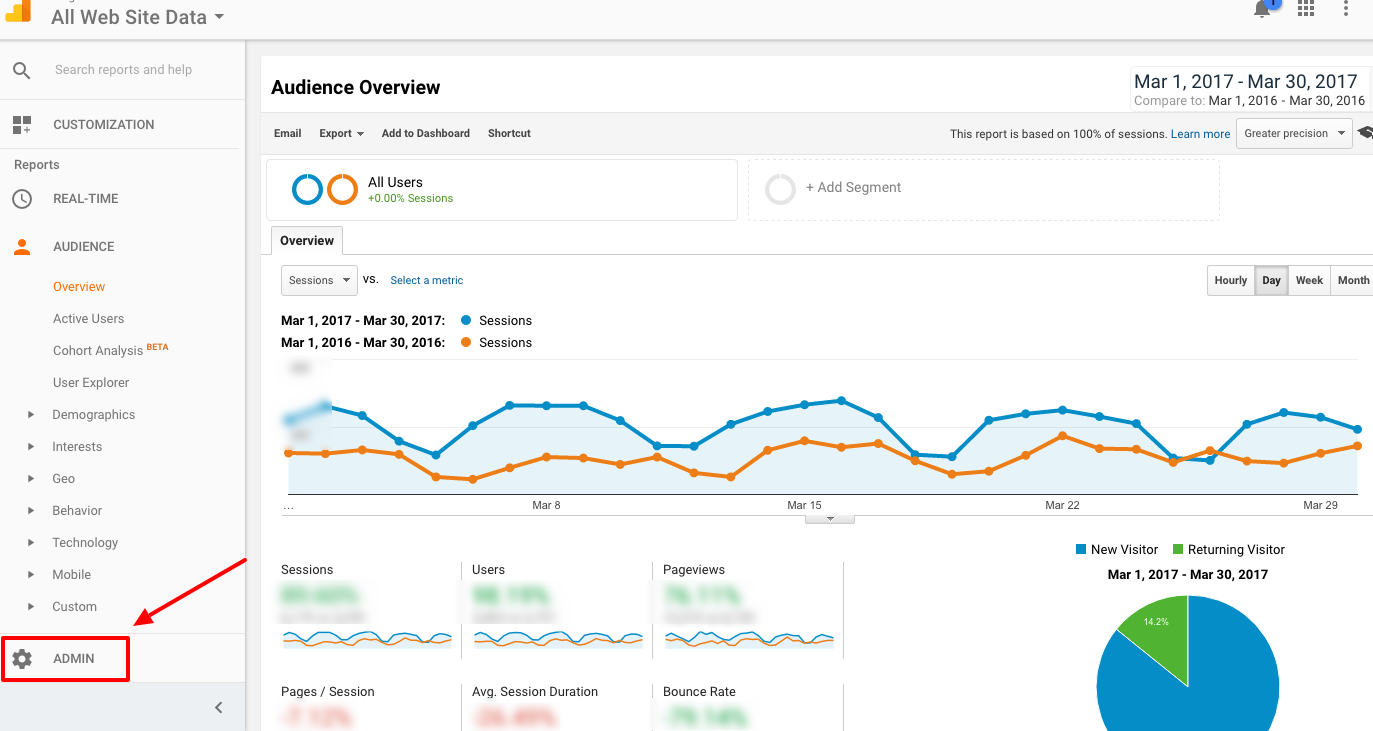Does your new client want to be ranking in position one in the map pack? To do this, does not involve typing“near me” ever 3 words. Instead, it involves many factors, one of which is having an amazing location landing page.
How to have an amazing landing page?
As SEO professionals, we constantly tell our clients and stakeholders that great SEO implementation is meant to satisfy search intent. Which is why we need to bring that same logic into our location page optimization.
This list aims to address several possible questions that a website visitor might have when learning about a local business.
1. NAP(name, address and phone number)
NAP stands for name, address, and phone number. Your NAP should be an exact match on your location page, Google My Business profile, or any other citation.
Some SEO professionals as well as google claim that an exact match is no longer really important, however, some still do. Don’t risk it and just make sure it is a match.
2. Photos
Photos are incredibly important on location pages however most businesses are missing important opportunities with them.
Interior photos
Interior photos allow guests to get a realistic expectation on what to expect inside your business. This is important, especially with healthcare businesses, where nice-looking interior photos can be a deciding factor.
Exterior photos
Exterior photos are just as important as interior photos for location pages. Exterior photos are meant to help new visitors find your business upon their initial arrival. And just like interior photos, they can also be a decision-making factor for someone visiting a new business.
Your exterior photos should include:
- Signage and logos.
- Parking(if applicable).
- Nearby businesses(if inside a mall or strip mall).
Optimize your Metadata
Your images should be high quality but sometimes the file size is too big. This could be due to the high amount of metadata. There are many tools like ImageOptim that can remove unnecessary metadata while maintaining the high quality of the photo.
3. Description of Business Location
The description of the location is where many businesses fail. Some businesses simply use the same description on all location pages and just replace the location name. This is what you shouldn’t do since it is not beneficial for SEO. Each location page should be unique.
Here are some suggestions to think about when writing your location description.
- Services Offered: Are there any services offered at this location that is unique compared to other locations?
- Products & Brands Nearby: If your location is a physical store, what are some major brands that someone may be searching for near you?
- Nearby Locations: Do you have other location nearby? This can also help with internal linking.
- Different from the Competition: What makes your store different when compared to your competitors in the area?
- Menu: A must-have for restaurants.
4. Helpful CTA
Call to Action is incredibly important for any marketing and that includes on location pages. Make sure that your CTA makes sense and adds value to your user experience.
Some suggested CTAs are:
- Get Directions(link to Google Maps).
- Reserve Table.
- Request Appointment.
- Shop Now(if online shopping is available).
5. Directions to Business
Including directions to your business can help your users find you as well as gives an opportunity to work in geo-specific keywords and targeting in your copy.
If you don’t know how to do this then just stick to providing instructions from at least two directions(East/West or North/South) from major highways. Mentioning major intersections can also help people identify your business location
6. Embedded Map
Embedding a map into your website allows users to figure out which of your locations is closest to them.
7. Title and Meta Description
Even though this is SEO 101 businesses often forget to do it for their location page since they are trying to rank in the map pack. It is still incredibly important since organic results still give businesses traffic.
Title
Your title should have three basic elements:
- Brand name
- Geo-specific keyword(city or local area)
- Keyword
Meta Description
Even though Meta Description doesn’t directly affect rankings, it is key for selling someone on coming to your site. Make sure you include the same three elements that you have you used in your title and expand on their selling points.
8. Internal Linking
There are many ways to add relevant internal linking. Remember internal linking is an important SEO tool.
Here are some ideas for internal linking, not all will be relevant. For SEO it’s important to only do the relevant ones.
- Link to other nearby locations.
- If your location offers specific services, link to informational pages about those services.
- Link to location-specific social media profiles.
- For medical clinics, link to doctor profiles.
- For restaurants, link to menus.
- Link to your company about page.
- Have a space for recently published blogs.
- For stores, link to any available online shopping.
9. Load Speed
One very important ranking factor as well as important for local SEO is load speed.
Having a fast loading location page can make the difference between your site ranking in position two and position one in the map pack.
Tools like Google PageSpeed Insights or GTMetrix can help you diagnose issues with the load speed of your webpages.







